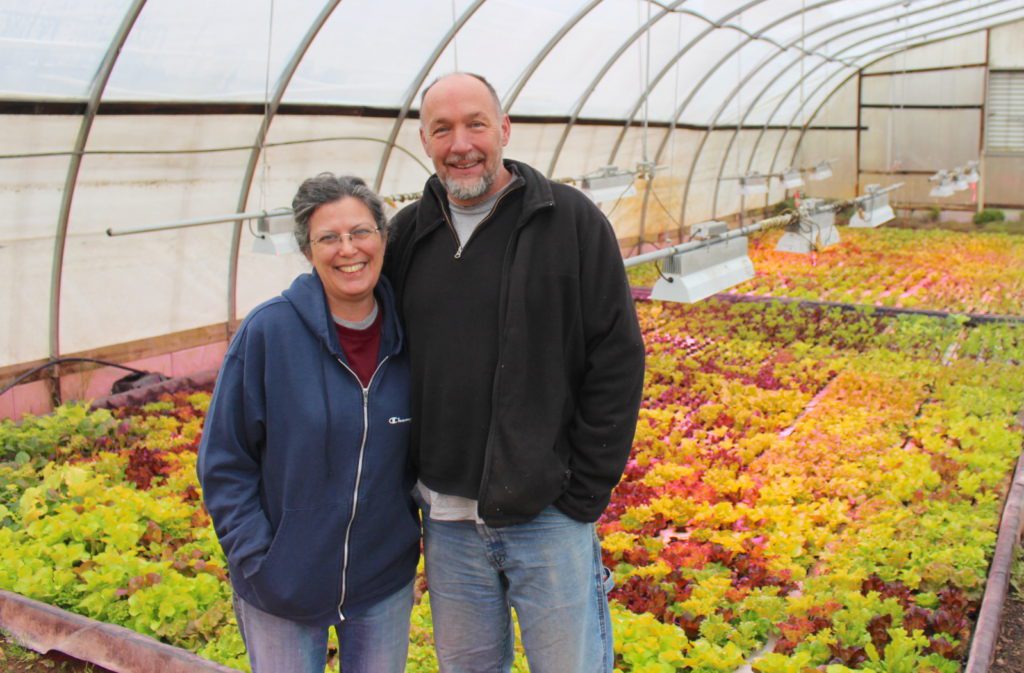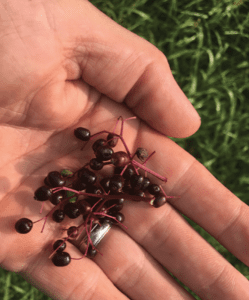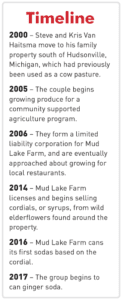

Mar 27, 2019Value-added products boost Mud Lake Farm’s revenue
To a grower, a value-added product means a crop plus processing and packaging – but such products also may add revenue to the farms themselves.
That’s the working theory at Mud Lake Farm south of Hudsonville, Michigan. In just over a dozen years, Steve and Kris Van Haitsma have built a successful farm operation from the ground up, growing greens for local restaurants and a community supported agriculture program. But the newest part of the farm, a profitable effort producing cordials and sodas from elderflowers, has grown to produce nearly 40 percent of the farm’s revenue in just four years and is much more profitable than the greens.


“There are so many more small farms doing that, and you’re competing against California and Mexico,” Van Haitsma said.
Value-added products are more workable, he said.
“It gives you control over your product,” he said. “You’re selling at retail.”
Mud Lake Farm was a stop on the Farm Market Bus Tour held as part of the recent Great Lakes Fruit, Vegetable & Farm Market EXPO in Grand Rapids, Michigan.
Finding the farm
The seeds of Mud Lake Farm were sown in 2000 when the two moved to a homestead that had been in Steve’s family for roughly a century. The two started to grow vegetables in 2006, and eventually added greenhouses and as they were approached by restaurants and their business expanded.


The marshy land had once been used as a cow pasture.
“It floods constantly, which for the elderflowers is great,” Kris Van Haitsma said. While Steve’s background is in business management, Kris has a background as an environmental chemist, and she was the first to note the many wild elder bushes. She said there are roughly 1,000 wild elder bushes on the property. In more recent years, the family has propagated the plants by taking cuttings, and even planting nursery-raised elderberries.
“We pick the flowers, and then what we don’t pick turn into berries,” Steve said.
Although some people grow elderberries as a crop, the elderflowers themselves also have a strong flavor, and the Van Haitsmas began experimenting with making cordials or syrups from the flowers.
“There was just a lot of playing around with things,” she said. Inspiration hit during a trip to Wales, where they sampled what was essentially an elderflower soda – something they hadn’t ever tasted before back in the U.S.
“We thought, nobody’s doing this, and we have all of these elderflowers on our land,” Kris said during a recent farm tour of her land. “We should do this.”
Plans and cans


For the canning operation, they are able to use equipment at a winery in nearby Grand Rapids. The Michigan State University Product Center also assisted in developing the products. A year and a half ago, they began producing a ginger soda – 11 percent of the ginger used in that soda is grown at Mud Lake Farm. Since that time, they’ve also started experimenting with other flavors including root beer.
“It’s really taken off,” Kris said during the tour. “It doesn’t really interfere with growing the lettuce at all.”
— Stephen Kloosterman, associate editor














